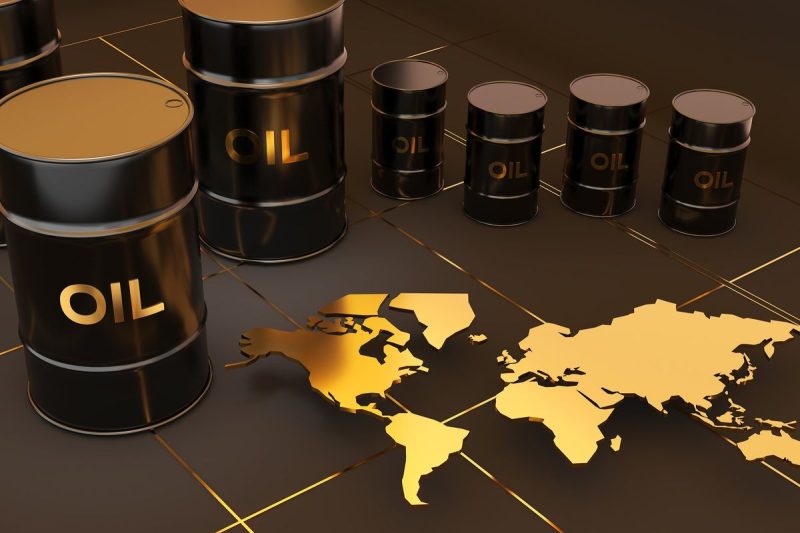**Russia**
Russia, the largest country in the world by land area, is also one of the top oil-producing countries globally. The vast territory of Russia holds significant oil reserves, primarily located in Western Siberia and the Urals-Volga region. The country has been a key player in the global oil market for several decades, with major state-owned companies like Rosneft and Gazprom leading the industry.
**China**
China has experienced rapid economic growth over the past few decades, driving an ever-increasing demand for energy resources, including oil. As a result, China has become one of the top oil producers globally, with production predominantly concentrated in regions like the Bohai Bay Basin, the Tarim Basin, and the Sichuan Basin. The country’s national oil companies, including PetroChina and Sinopec, play a crucial role in meeting domestic demand and ensuring energy security.
**Canada**
Canada is known for its vast natural resources, including extensive oil reserves found primarily in the oil sands of Alberta. The country’s oil production has steadily increased over the years, making it a significant player in the global oil market. Canadian oil companies, such as Suncor Energy and Canadian Natural Resources, are actively involved in the exploration, production, and distribution of oil both domestically and internationally.
**Iraq**
Iraq, endowed with substantial oil reserves, has a long history as a major oil-producing country. The country’s oil industry plays a crucial role in its economy, accounting for a significant portion of government revenue. Iraq’s oil fields, located mainly in the southern regions around Basra and in the northern Kurdistan region, are operated by national oil companies like the Iraq National Oil Company and international oil companies under production-sharing agreements.
**United Arab Emirates**
The United Arab Emirates (UAE) is a prominent oil-producing country in the Middle East, with significant reserves located primarily in the Emirate of Abu Dhabi. The country’s oil production is managed by the state-owned Abu Dhabi National Oil Company (ADNOC), which oversees the exploration, production, and export of crude oil. The UAE’s strategic location and well-developed infrastructure make it a key player in the global oil market.
**Brazil**
Brazil has emerged as a leading oil-producing country in recent years, thanks to the exploration of offshore pre-salt oil fields in the Santos Basin. The country’s state-controlled oil company, Petrobras, has been at the forefront of unlocking Brazil’s vast hydrocarbon resources. Brazil’s oil production is expected to continue growing as new projects come online, further solidifying its position in the global oil industry.
**Kuwait**
Kuwait, a major oil-producing country in the Middle East, boasts significant oil reserves concentrated in the Greater Burgan field, one of the world’s largest oil fields. The country’s oil industry is dominated by the state-owned Kuwait Petroleum Corporation (KPC), which manages all aspects of oil production and export. Kuwait’s oil production plays a crucial role in the country’s economy, providing substantial government revenue and supporting various industries.
**Nigeria**
Nigeria, a leading oil producer in Africa, has abundant oil reserves located mainly in the Niger Delta region. The country’s oil industry, dominated by the state-owned Nigerian National Petroleum Corporation (NNPC) and international oil companies, has faced challenges such as pipeline vandalism, oil theft, and regulatory issues. Despite these challenges, Nigeria remains a significant player in the global oil market, exporting crude oil to various regions worldwide.
**Norway**
Norway, a country known for its strict environmental regulations and sustainable practices, is also a notable oil producer. The country’s oil reserves, primarily found in the North Sea, have supported Norway’s economy for decades. Norway’s state-owned oil company, Equinor (formerly Statoil), leads the exploration and production of oil and gas resources while adhering to stringent environmental standards. Norway’s oil industry is a critical component of the country’s economy, providing substantial revenue and supporting welfare programs.
**Mexico**
Mexico, a major oil producer in Latin America, has significant oil reserves located both onshore and offshore. The country’s state-owned oil company, Pemex, plays a central role in Mexico’s oil industry, overseeing exploration, production, and refining operations. Mexico’s oil production has experienced fluctuations in recent years due to factors such as aging infrastructure, declining reserves, and changes in government policies. However, Mexico remains an important player in the global oil market, exporting crude oil to various countries.
In conclusion, the top oil-producing countries mentioned above are key players in the global oil market, with significant reserves, established infrastructure, and state-owned oil companies driving production and export activities. Despite challenges such as fluctuating oil prices, geopolitical tensions, and environmental concerns, these countries continue to play a crucial role in meeting global energy demand and shaping the future of the oil industry.






























